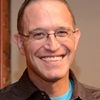"Marketing only has so many things to talk about and eventually you get to the point where it has to be about the mindset."
Don't miss a MarketingProfs podcast, subscribe to our free newsletter!
Julien Smith, author of The Flinch and co-author (along with Chris Brogan) of Trust Agents, was pondering a question I'd posed him in this week's episode of Marketing Smarts. I was curious to know why he thought it was that so many books, supposedly about marketing and business, seemed more focused on self-actualization and personal empowerment.
"At the core of it," he said, "after talking about it in so many different ways, you just realize that the only thing that really remains, that stands as an obstacle in front of people, is people....Each person is their own largest obstacle."
It's an interesting notion: There are a finite number of proven marketing strategy and tactics; it's not hard to find out what they are. Since everyone basically has the same tools at their disposal, success or failure depends on one's willingness to put in the effort, apply them, and do the work. Therefore, effective marketing books need to focus on enabling the will (Julien calls it "[creating] the emotional state that will make the thing work"), rather than detailing step-by-step what needs to be done (after all, you can get that stuff from the web!).
Though, that being said, Julien points out that, in some cases, "People really do want to be told exactly what to do."
I lived the truth of this last statement years ago when in charge of a new employee training program. Turns out, I discovered, when you are starting a new job, you don't want a general framework in which you can figure things out on your own (and thus armed, "sink or swim"). You want someone to tell you what works and to help you organize your time and activities until you've got your footing in the new role.
Finding your footing, however, is just the beginning. As Julien and Brogan emphasize in Trust Agents, the only way to "get to the next level" is to stop working strictly by the rules of the system and to start figuring the system out...so you can hack it.
Hacking the system—what they call "making your own game"—doesn't mean ripping people off or taking advantage of others. On the contrary, it means finding points in the system that allow you to use it in ways for which it wasn't initially intended.
To illustrate, Julien uses the example of people like Brogan and Robert Scoble "hacking" the social web by accumulating hordes of "friends." The guiding assumption of most social platforms, at least in the early days, was that people would only connect with actual friends—people they really knew; by expanding the definition of "friend," as some pioneers did, in a way the system allowed but didn't anticipate, some were able to create surprisingly large and complex networks and then use these networks to achieve unprecedented power.
What does such power look like? Julien describes the people who have achieved it as, "almost like 'Ghost in the Shell' type, really powerful, highly leveraged individuals that can go anywhere, can get anything for free, and they can make tons more money than anyone could ever make, without batting an eyelash."
The technology produces this power—"The internet really does change everything"—and once we realize this power is possible, the only real question becomes: Will this new power be used for good or evil?
If you've read Trust Agents, you'll recall that the authors go to great and frequent lengths to explain that they're not talking about gaming people, taking advantage of them, or ripping them off. As they state early on, "In this chapter, we're talking about taking advantage of systems, not people," later acknowledging "...how tricky it is to write about this stuff without running the risk of sounding like leveraging your relationships is the equivalent of using people."
To navigate this trickiness, Julien says that he asked Dan Ariely at one point, "How do I talk about the social norms and the fact that they're exploitable while saying, 'I'm not unethical and I don't intend to take advantage of people'?"
I think that the only way you can do that is a) by actually being ethical, but also b) by realizing that it is not unethical in itself to take advantage of a systemic weakness just because others ignore or don't see it. You might even go so far as to say that you have something like an ethical imperative to act on your insight once you've had it.
"Systems are exploitable," Julie insists,"If you don't exploit them, it's almost like you're wasting your life."
...sign up for free to continue reading
Don't miss a MarketingProfs podcast, subscribe to our free newsletter!
Published on January 18, 2012





